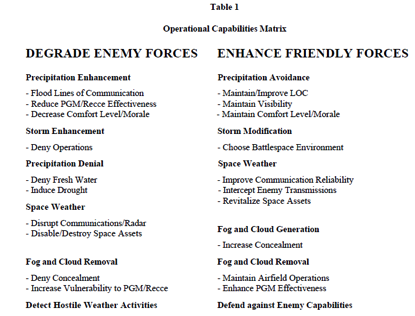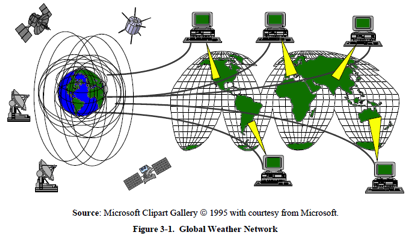 FURTHER THOUGHTS ON CENSORSHIP
FURTHER THOUGHTS ON CENSORSHIP
The previous postings in?Round One?and?Round Two?included answers from Australia, Europe and North America.
In this round, we hear from respondents in Australia, Bangladeshi, Canada and Israel.
This Q&A series follows on from Alasdair Foster?sinterview with Armani Nimerawi?on the subject of censorship, CDC asked artists and colleagues around the world three questions:
- Have you ever been censored?
- Can you give an example of justified censorship?
- If you ruled the world? how would the issues that lead to censorship be addressed?
___________________________________________________________________________________________________________________________________________________
 ~
~
RUTHI OFEK
Ruthi Ofek is Director of the Open Museum of Tel Hai. Notably, this museum is situated in the heart of an industrial area and its mission is to break down barriers between the worlds of art and industry. Focusing on important national and international photographers, its programs are presented across five themed galleries. Additionally, once a year, it organises a group exhibition of graduate photography from Israeli art schools.
Have you ever been censored?
Yes, years ago, we had a student graduation exhibition. One of the students had thrown photographs of Israeli former Prime Ministers on the floor so that the visitors had to walk over them. It created a big scandal in the press and we were asked to change the position of the photographs, so they were re-displayed on the wall.
Can you give an example of justified censorship?
I can justify the censorship if it simply a personal attack, but not if it is an expression of free opinion.
If you ruled the world?
If I ruled the world, I would emphasis creativity focused on good ideas that would make the world a better place to live in. This is an optimistic wish, because I have three grandchildren!
___________________________________________________________________________________________________________________________________________________
 ~
~
WILLIAM YANG
William Yang has been hailed as one of Australia?s great storytellers. His very personal interweaving of narratives describes the experience of being a gay third-generation Chinese Australian in a country that was not always hospitable to people of different appearance or alternative sexual orientation. While he exhibits regularly and widely, his ultimate art form is the illustrated monologue for which he has won plaudits around the globe.
Have you ever been censored?
Yes I have been censored. Censoring covers a spectrum of attitudes from banning to disapproval. I like to show gay images: that is men having sex with men, and male nudity. Both these areas have met with degrees of disapproval.
 Contemporary art practices generally favour pushing boundaries and the new. I have some idea which of my photos would provoke a disapproving response although you never really know until you put it out there in the public domain. I decide how far I want to go, whether an idea or attitude is worth pushing. So it?s a kind of self-censorship which is part of cultural socialization. It happens all the time in ordinary socialization.
Contemporary art practices generally favour pushing boundaries and the new. I have some idea which of my photos would provoke a disapproving response although you never really know until you put it out there in the public domain. I decide how far I want to go, whether an idea or attitude is worth pushing. So it?s a kind of self-censorship which is part of cultural socialization. It happens all the time in ordinary socialization.
Can you give an example of justified censorship?
An example of justified censorship was not showing the dead body of Osama Bin Laden for fear it would inflame the Muslin world. It would have been a provocative act.
If you ruled the world?
Most attitudes are the result of cultural conditioning. If I ruled the world I would like everyone to be exposed to different cultural attitudes. If there was an issue about, say, attitudes towards women, people should be exposed to cultures with different attitudes to this topic, and hopefully an understanding of position would come from this exposure. It?s better to know where a person is coming from and to have an attitude of live and let live, than to say ?You can?t do that? with its implication of ?My position is better?.
___________________________________________________________________________________________________________________________________________________
 ~
~
DIANA THORNEYCROFT
Diana Thorneycroft is an award-winning?artist living in Winnipeg. Over the past three decades she has created challenging work that blends a shadowy narrative with an aesthetic that seduces even as it disturbs.? While her earlier work situates a living figure in a mythic space, her later images use dolls and toys to mine a troubled sensibility that is deeply engrained in the Canadian identity.?Canadian Art?magazine rated her ?Group of Seven Awkward Moments? in the top ten exhibitions of 2008.
Have you ever been censored?
 There are several kinds of censorship: the big ?C? when work is removed from gallery walls due to public pressure, which I have never experienced; and the small ?c?, when exhibitions are refused, even though the work is strong, because of the risk it presents.
There are several kinds of censorship: the big ?C? when work is removed from gallery walls due to public pressure, which I have never experienced; and the small ?c?, when exhibitions are refused, even though the work is strong, because of the risk it presents.
My exhibition ?The Body, It?s Lesson and Camouflage? had a remarkable tour despite the content being problematic for many viewers. For that I credit the institutions that accepted the show and the individuals who stood behind the work. In situations where galleries had a ?talk back? forum in place (where members of the public were encouraged to leave their comments) it was clear many visitors felt my photographs should be taken down. And, if it were up to them, the work would be (as one person wrote) ?burned out back with the rest of the garbage?.
Can you give an example of justified censorship?
Hands down, art work that deals with blatant child pornography. I know in some people?s minds this is subjective ? case in point, Sally Mann?s photographs of her kids, however I doubt her images would appear in a porn magazine.
If you ruled the world?
If I ruled the world I would implant little chips into every person?s brain that would cause temporary blindness as they approached an image that they would find too difficult to handle.
___________________________________________________________________________________________________________________________________________________
 ~
~
SHAHIDUL ALAM
Shahidul Alam?is a photographer and social activist based in Dhaka. He set up?DRIK?photo agency in 1989 and in 1998 he founded?Pathshala:South Asian Institute of Photography, which recently became the?South Asian Media Academy. He is also a director of?Chobi Mela, Asia?s longest-running festival of photography. Widely respected internationally, he was the?first person of colour to chair the international jury of World Press Photo. His monograph??My journey as a witness??was published in 2011.
Censorship occurs in many ways, and I have faced it numerous times in my career. It?s happened in Bangladesh, where galleries have refused to show my work, sponsors have backed out, and our gallery and office have been surrounded by riot police preventing visitors from coming in. Overseas publications have been very keen to get my content. Until they discovered my work was critical of their practice, which was followed by a stony silence. Nothing, of course, was printed.
In Bangladesh there was also more indirect, but more disruptive action. This was not censorship in a strict sense, but a message sent in response to our actions. All telephone lines to our office were disconnected after we published a critical piece on our human rights portal. It took two and a half years to get our lines working again. I was attacked in a street that was protected by the military and received eight knife wounds on the day after we had organised a press conference protesting against the government using the military to round-up opposition activists.
Can you give an example of justified censorship?
This is a difficult one and I am wary of giving answers that might be used out of context, but I myself have withheld information where the location of a person who had death threats made against her would have been revealed, putting her life at risk.
If you ruled the world?
I do not believe the world should have a single ruler but, if I were in a position of influence, I would work towards developing a responsible attitude towards information and ensure there was a culture of sharing. If I were the gatekeeper, my primary goal would be to ensure I had gained sufficient trust for people to respect my judgement. There will always be information that has to be withheld at a particular point. If people feel the decision makers have integrity, then acceptance of such actions becomes less of an issue. However, any act of censorship would need to be justified, and clearly demonstrated to be in the interest of public good. That does open it up to the question of who defines public good and on what basis, but there is no way round that one.
___________________________________________________________________________________________________________________________________________________
Images:
A boy views the landscape through a camera obscura in front of the Open Museum of Photography Tel Hai [image ? the Museum]
?Tony and Michael? 1995 ? William Yang
untitled (snare)????Diana Thorneycroft
Cover of Shahidul Alam?s book ?My Journey as a Witness? [Skira Editore, 2011]
___________________________________________________________________________________________________________________________________________________




